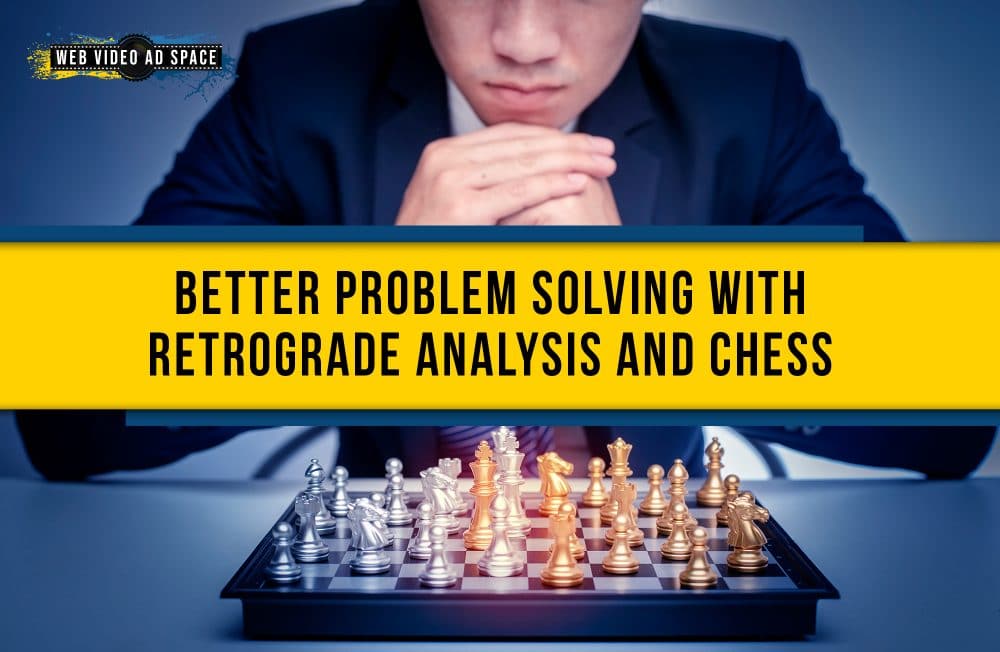I just read a feature piece on Maurice Ashley, a Chess Grandmaster. He made a TEDed talk about how sometimes working backwards is the best way to solve a problem.
This process is known as retrograde analysis and I’m surprised how little I use it.
Part of the reason I want to write a post about this is to hopefully remind myself to include it explicitly when I am problem solving.
It basically works by starting with an outcome and working backwards from there to the current state of the problem.
I see so much use for this in my own business from project planning to client management.
In some ways it’s similar to setting goals and milestones, but with those I typically set them and then try to build out the steps (forward) to get there.
What I like about the process of retrograde analysis is that I set the goal or outcome and then ask, what has to happen just before we reach this outcome… and just before this, and so on all the way back.
I suspect new insights occur similar to the examples Mr. Ashley gives in his presentation.
One example I can think of in my business is planning training material.
Instead of outlining all the skills or steps necessary to cover a topic, how much more valuable is it to identify how the successful student is different from the complete beginner.
What does a successful student/practitioner know? How do they approach problems and what new capabilities do they now have?
This approach makes the planning process less about covering material and more about developing capabilities… getting the right mix of mindset and technical skill (which is where most training falls short).
This is equally valid for client work. What should a successful end game look like?
How about something like this: A predictable content and creative schedule communicated to a known audience producing reliable sales and leads.
Then work backwards!
If you’re like me, then you need paradigm shifts from time to time in order to make progress and overcome the feeling of being stuck in a rut.
This was just the shift I needed, so I thought I’d share it.
If you’re interested in learning more about retrograde analysis and Maurice Ashley’s story, read the full article by Justin Bariso here: http://www.inc.com/justin-bariso/a-chess-grandmaster-shares-an-effective-trick-for-solving-any-problembr-.html


